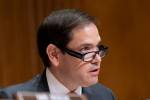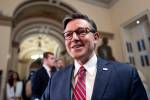Don’t put philosophy ahead of people
It seems I upset a few people with my Sunday column on the American Conservative Union's grading of the Nevada Legislature.
Gregg Keller, national executive director of the group, wrote in to condemn my "breathless attack on the American Conservative Union," accusing me of "bigoted" rhetoric.
Actually, Gregg, if I attacked anyone, it's the five state senators who earned your group's "defender of liberty" title: Greg Brower, Don Gustavson, Elizabeth Halseth, Michael Roberson and James Settelmeyer. I've no problem with the ACU or its report card, and I even agreed with the group's stance on some of its priority legislation.
(I took issue with votes against providing taxpayer-funded breakfasts to schoolchildren; stricter regulation of workplace safety hazards; increased training requirements for child care workers; and requiring contractors working on redevelopment agency projects to hire workers from the redevelopment area.)
But Gregg did compare me to Vice President Joe Biden on Twitter, and I've always liked Biden, so thank you for that, sir.
Victor Joecks, communications director of the Nevada Policy Research Institute, also took issue with my piece, accusing me of "personal attacks" on conservatives. Actually, I know a couple of the senators on the "defenders of liberty" list, and I like them personally.
But the main thrust of Joecks' blog was that I had used "false dichotomies" to attack the "liberty defenders," saying that, for example, if they opposed tax-funded breakfasts for schoolchildren, they didn't want kids to enjoy a good breakfast.
Is that a false dichotomy? Or is that what happened? When Assembly Bill 137 (the school breakfast bill) came up for a vote, lawmakers had a choice: They could vote yes, knowing that without the bill, some children would go hungry and have a harder a time learning, or they could vote no.
Now, whether they voted no because they didn't think it was worth the money, or because they didn't think it was something government should do, or because they think parents or charities should provide breakfast themselves, is something only the nine senators and 13 Assembly members who voted no know for sure. But for whatever reason, they voted no. And in the process, they elevated whatever conservative philosophy drives their votes above the needs of real people suffering in real life.
And the same goes for votes on workplace safety. Despite the real-world deaths of a dozen workers on the Las Vegas Strip, 10 senators and 11 Assembly members denied Nevada's OSHA the ability to enforce a stricter standard in the workplace. Whether it was because those lawmakers believed government regulations hurt business, or the standard was too vague, or safety should be left to the free market, the fact is, their philosophy trumped safety.
In the end, both bills passed the Legislature but were vetoed by Gov. Brian Sandoval.
Nobody is happy about kids going hungry or workers dying in industrial accidents. Neither conservatives nor liberals want that to happen. But the difference is, when given a chance to end that suffering or mitigate the risks, conservatives chose not to do so while others (of both parties) chose to act. Regardless of why conservatives opposed those bills, the net effect of their votes was to allow people to continue suffering so an abstract political philosophy could be maintained.
Conservatives have every right to that philosophy, of course. But they shouldn't be heard to complain when somebody calls them out on the practical implications of their votes.
That's not a false dichotomy. It's an actual reality.
Steve Sebelius is a Review-Journal political columnist and author of the blog SlashPolitics.com. Follow him on Twitter at www.Twitter.com/SteveSebelius or reach him at (702) 387-5276 or ssebelius@reviewjournal.com.























